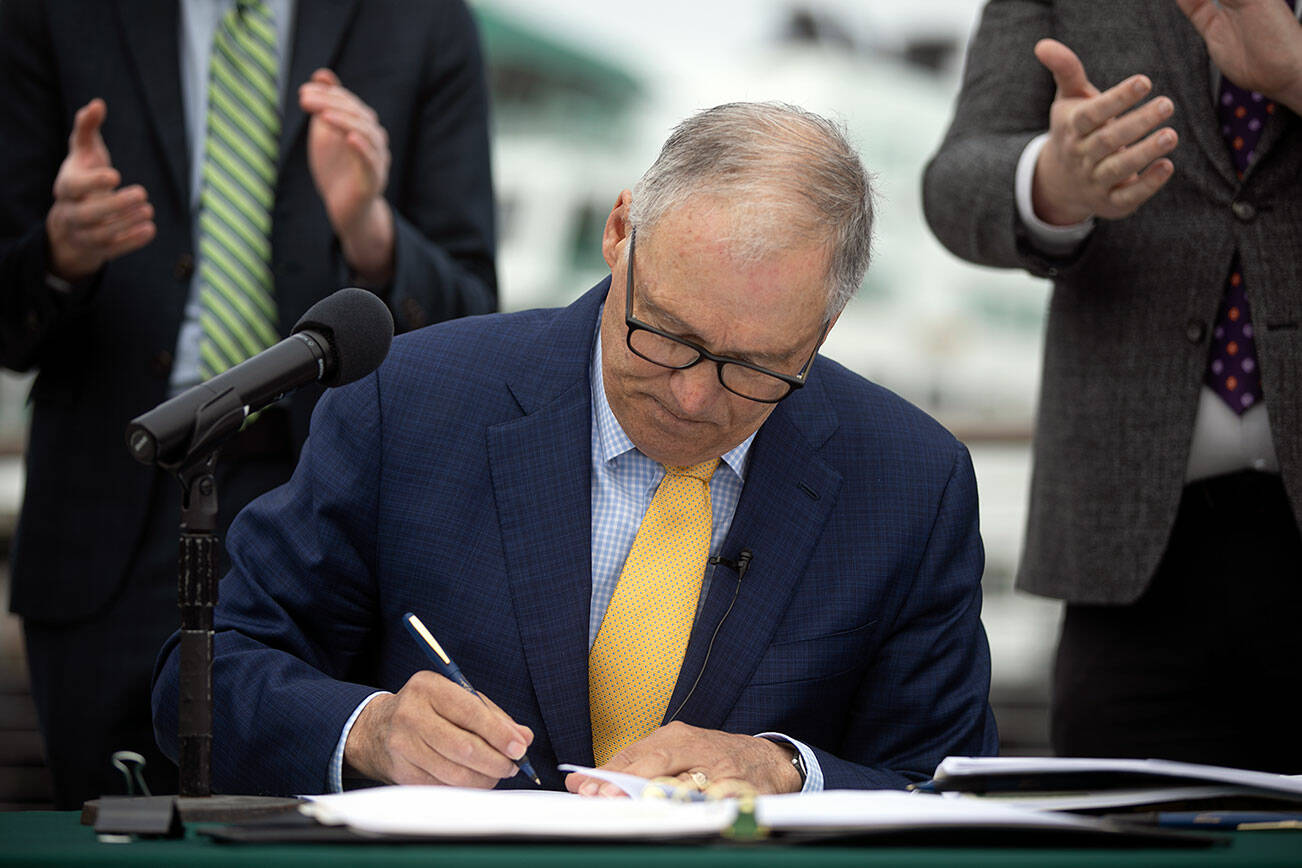Gov. Jay Inslee held a signing ceremony at the Mulilteo ferry terminal Friday to highlight a $17 billion, 16-year transportation spending package that will fund an array of projects across the state, including four new hybrid-electric ferries.
In addition, the measures include $10.5 million for Whidbey Island projects.
The governor held two signing ceremonies on Friday, one in Mukilteo in the morning and another later in the day at Tacoma. At both stops he touted the climate and clean energy elements in the transportation measures.
“Isn’t it a great morning to be here to celebrate the biggest, the boldest, the cleanest and the greenest transportation and climate project in the history of Washington?” Inslee asked. “This is another step forward in revolutionizing our transportation system and revolutionizing our energy system in the state of Washington.”
The funding package includes $1.1 billion for the construction of new ferries, ferry preservation and support and ferry operating account support.
Ian Sterling, public information officer for State Ferries, said the Clinton-to-Mukilteo ferry route is expected to be the first served by a newly built hybrid-electric ferry. Since the completion of the new vessel isn’t expected until 2025, the state has time to construct charging facilities.
He explained that the boat will be able to charge its battery using diesel, but the full benefit of the hybrid-electric motor requires charging infrastructure. Once that’s in place, nearly all diesel use will be eliminated.
Sterling pointed out that the route may not be the first in the state to operate a hybrid-election ferry. The transportation package includes funds to convert Jumbo Mark II Class ferries to hybrid-electric; the first will operate on the Seattle-to-Bainbridge route.
State Ferries reports that it burns more than 18 million gallons of diesel fuel each year. In January 2020, Inslee signed an executive order telling the ferry system to move toward a zero emissions fleet.
The bill includes funding to help improve crew shortage problems that have plagued ferry service. A total of $93,000 is earmarked to secure housing for new recruits and address up-front costs for training.
New funding will also permit anyone under the age of 18 to ride free on buses, the state ferries and Amtrak.
Under the plan, Island Transit is set to get $7 million to purchase electric buses under a pilot program. Island County is receiving $3.5 million to construct a trail between the Clinton ferry and Ken’s Korner, according to state Rep. Dave Paul’s office.
“I’m very pleased that the legislature has prioritized these important projects for our community, Paul said. “I’m especially proud that my advocacy for ferry riders—the investment in our ferries is critical for Whidbey Island and our state’s transportation system.”
The transportation package has several sources of funding, including an estimated $5.4 billion from the governor’s cap-and-invest Climate Commitment Act passed last year. Gas taxes were not increased.



